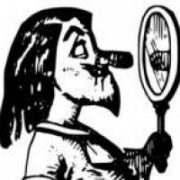Negotiation skills: Sell yourself correctly
Self Reflection Blog Series : For and by Early Career Scientists
I do not see myself being particularly talented in negotiation since I grew up in a culture where a well-behaved is often rewarded with a certain degree of entitlement. Being modest and humble were the two virtual values emphasized during my early childhood education, so I still feel uneasy when it comes to negotiation. I was not even familiar with the idea of packaging myself and selling the packaged academic product in my college years. As it did not come naturally but gained during my academic training, I hope to share my experiences with the Plantae colleagues who might wonder how to reflect on oneself towards securing a best fitting job.
Personalizing was a new concept to me when I entered the academia as a graduate student. Unlike many text book narratives, current biologists tend to use first or second person voice to narrate scientific findings. I was at first bothered as to mistakenly interpret personalizing as privatizing, yet soon realized the best use of personalizing research themes and landmark findings. Although science deals with conceptual advances, it all goes down to everyday life in the lab, who does what. Ever since I noted this, I started to pay attention to who writes what and who gave what seminar. Extracting the two Ws and storing them linked in my mind really led me in the end to formulate myself throughout my training. This mindset definitely guided me to focus on the subject I like the most and thus to become productive and visible. One of my career goals is to become a scientist who can be identified from the research product that I will be putting forward in the coming years. What do you wanted to be remembered for? Having a defined research portfolio to which you can be linked would be a valuable asset to pursue.
Now, I ask myself how wide it can stretch under the “what” category. Our physical capability is all limited with a given amount of research funding, manpower and time. However, our scientific breadth goes beyond the limitation. During a round of job search, I ended up writing five different versions of research statement based on the unchangeable resume that I had built up. I think my versatility, at least being able to write multiple statements, comes from my postdoctoral training. I was super lucky as a postdoc to have opportunities to meet with many active scientists whose specialties ranging from molecular biology, evolution, ecology, engineering, computer science, climatology to mathematics. My comfort zone is still within the boundary of molecular genetics. I should tell you that a half an hour meeting with people who have little understanding on genes could be quite tough. Though in hindsight, I must confess that through those meetings I learned how to see my projects in different eyes. I recall numerous great conversations that I had with those intellectuals who interpreted my conversations in their own words. Those were great moments. I would highly recommend you to talk to people outside your clans. This will transform packaging the way of your research for sure.
I have always been feeling privileged to work on plants, as I found plant research is quite boundless thanks to the relative easiness to the study subjects and we plant biologists are readily embracing global challenges under our research scheme. I hope the researchers who read the Plantae blogs would be agreeing on this notion and want to see more blogs to appear on the crosstalk between academia and real-world challenges in near future. Our research field is quite mature to be able to technically provide a means to solve global issues in need, in particular in the matter of food security and conservation of biodiversity. But we do have to learn definitely how to translate our work using the real-world languages. I believe that active outreach evident in the Plantae platform will contribute to bring in the next wave in plant biology.
About the Author:
Eunyoung Chae is a plant geneticist who recently started her position as Assistant Professor at the Department of Biological Sciences, National University of Singapore. Her research area includes plant immunity, natural variation, trait evolution, and hybrid performances. She grew up in S. Korea (BSc/MSc from Seoul National University) and moved to the States to pursue her Ph.D. at Yale University, where she was trained as a developmental geneticist. She then sought to broaden her expertise in natural variation and genome evolution during her postdoctoral training at the Max Planck Institute in Tübingen, Germany. An ambitious large-scale hybridization experiment, using the model species Arabidopsis thaliana natural accessions, was carried out during that time by her and her colleagues. Her postdoctoral work identified particular immune components that cannot be combined in a genome due to their propensity to trigger postzygotic defects such as autoimmunity. This work brought unconventional insights on the evolution of the plant immune system and its constraint and contribution to trait evolution. The Chae lab continues to investigate non-additive genetic interactions between plant immune components and to develop a predictable model linking immune system diversity and growth traits, particularly in hybrid plants.



